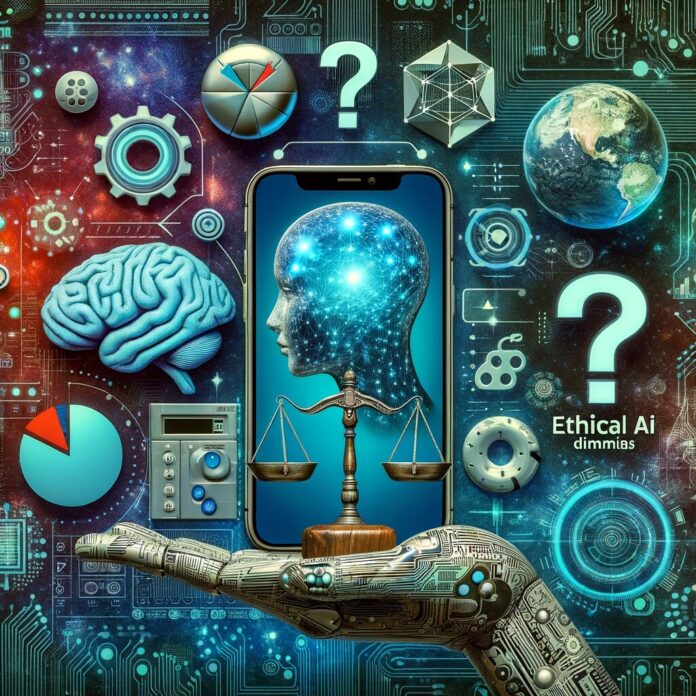Introduction to Ethical Considerations in AI

Ethical considerations in artificial intelligence (AI) have become increasingly important as AI technologies are integrated into diverse aspects of society. This article explores key ethical challenges, implications, and efforts to promote responsible AI development and deployment.
Ethical Challenges in AI Development
Bias and Fairness
One of the foremost ethical challenges in AI is bias in data and algorithms. AI systems trained on biased data can perpetuate societal biases, causing unfair outcomes in hiring, lending, and law enforcement. Efforts are underway to develop fairer algorithms and mitigate bias through improved data collection and algorithmic transparency.
Implications for Privacy and Surveillance
Data Privacy Concerns
AI systems often require vast amounts of personal data to operate effectively, raising concerns about privacy infringement and surveillance. Striking a balance between data utility and privacy protection is essential in AI development, with regulations like the GDPR (General Data Protection Regulation) in Europe setting standards for data use and protection.
Accountability and Transparency
Explainable AI (XAI) and Algorithmic Transparency
Ensuring accountability for AI decisions is crucial as these systems become more autonomous. Explainable AI (XAI) techniques aim to make AI models more transparent and understandable to stakeholders, enabling users to interpret and challenge algorithmic decisions. Transparency in AI development and deployment enhances trust and accountability.
Social and Economic Impact
Job Displacement and Economic Inequality
AI’s automation capabilities have the potential to disrupt labor markets, leading to job displacement and economic inequality. Addressing these challenges requires proactive measures such as reskilling programs, social safety nets, and policies that promote inclusive economic growth in the age of AI.
Governance and Regulation
Ethical Frameworks and AI Governance
Governance frameworks and regulations play a pivotal role in shaping ethical AI practices. Governments, industry leaders, and academia are collaborating to establish guidelines and standards for AI development, focusing on ethical principles such as fairness, accountability, transparency, and societal benefit.
Recent Developments and Future Directions
AI Ethics Committees and Guidelines
Recent developments include the formation of AI ethics committees by tech companies and institutions to oversee ethical AI practices and policies. Organizations like the Partnership on AI and IEEE (Institute of Electrical and Electronics Engineers) have published guidelines to promote ethical AI research and deployment.
Emerging Technologies and Ethical Considerations
As AI continues to advance, emerging technologies such as autonomous vehicles, facial recognition, and healthcare AI raise new ethical dilemmas. Ethical frameworks must evolve to address these challenges, ensuring that AI technologies are developed and used responsibly to benefit society while minimizing harm.
Conclusion
Ethical considerations are integral to the responsible development and deployment of AI technologies. By addressing biases, ensuring transparency, protecting privacy, and promoting inclusive governance, stakeholders can mitigate risks and maximize the societal benefits of AI. As AI continues to evolve, ongoing dialogue and collaboration are essential to navigating ethical challenges and shaping a future where AI enhances human well-being and fosters equitable progress.





